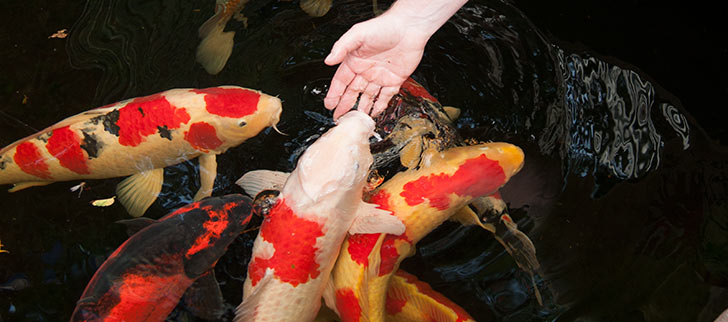
On the surface, the differences between ornamental ponds and koi ponds may not seem great. After all, a koi pond is simply an ornamental pond with koi, right? In reality, a koi pond is a complex ecosystem in miniature form, and careful consideration is placed on water quality. Transform your pond into a thriving aquatic system with beautiful koi using these water quality tips.
The larger the pond, the better
Pond water volume has a strong relationship with water quality. Simply put, large water volume means more stable water parameters. More importantly, the concentration of pollutants is diluted and distributed more evenly to help defer their ill effects. The ideal koi pond contains at least 1,000 gallons of water.
Efficient filtration
Filtration systems for koi ponds should filter or turn over the entire water volume at least twice an hour. There should be an emphasis on biological filtration to ensure efficient breakdown of nitrogen waste products. Fortify biological filtration with bacterial additives such as our Live Nitrifying Bacteria.
Aerate
As coldwater fish, koi are accustomed to high dissolved oxygen content in water. Pond water needs to be well oxygenated, especially during warm summer months when water is less able to retain oxygen. Increase water agitation (air to water contact) via streams,
water fountains,
waterfalls, or
aeration devices to replenish vital oxygen levels.
Proper feeding
Uneaten or poorly digested food can foul pond water. Be sure to feed seasonally appropriate food in correct amounts to prevent poor water quality. Our full line of
premium koi foods helps ensure good water quality and koi health.
|



